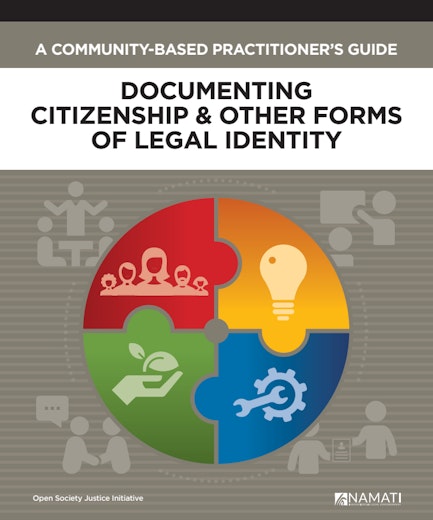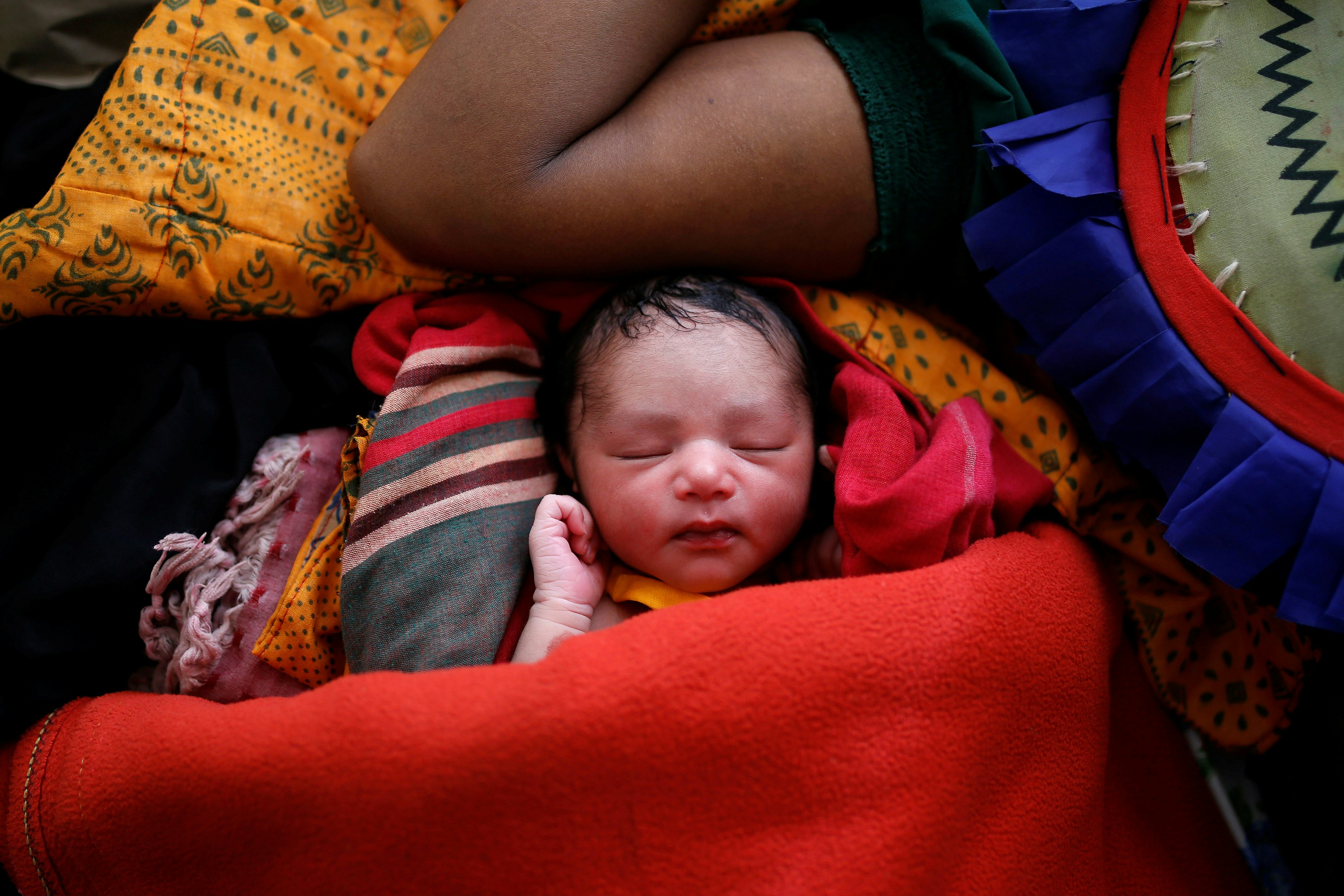Bueno v. Dominican Republic
Deprivation of Citizenship for Dominicans of Haitian Descent
Emildo Bueno needed a certified copy of his birth certificate to apply for a visa to join his wife in the United States. Even though he was born and raised in the Dominican Republic and had previously been issued a variety of identification documents, the government—as part of a systematic initiative to restrict access to nationality for Dominicans of Haitian descent—refused to issue him a copy of his certificate. The government’s refusal and the retroactive denial of Bueno’s citizenship left him at risk of statelessness and massively disrupted both his life and that of his family.
Facts
Emildo Bueno Oguís was born in the Dominican Republic to Haitian national parents. At the time of his birth, everyone born on Dominican national territory—with few exceptions—had an automatic right to Dominican nationality. Bueno’s Dominican nationality was recognized in his official birth certificate, as well as in the national identity card and passport the Dominican government had granted him.
In 2007, Bueno requested a certified copy of his birth certificate from the Dominican civil registry office, the Junta Central Electoral (JCE). He needed this document to complete the family reunification visa he had submitted to the United States government in order to join his wife, an American citizen, in the US. Although Bueno showed his valid ID (a cédula) and passport, the civil registry rejected his application for a copy of his birth certificate. It claimed that Bueno was not Dominican because his parents were "non-residents" at the time of his birth.
The government’s refusal to issue Bueno a certified copy of his birth certificate, and its contention that he was not a lawful Dominican citizen, amounted to a denial of his nationality; in other words, the decision denationalized Bueno.
Up until January 2010, the Constitution of the Dominican Republic provided for nationality on the basis of jus soli—the right to citizenship based on an individual being born in a country's territory—with an exception for children born to diplomats or to parents who were "in transit" at the time of the birth who were not given citizenship. "In transit" had been legally interpreted to mean people travelling through the country on their way to a final destination, for a period of up to 10 days. Bueno was born and granted Dominican citizenship under this jus soli regime.
In 2004, however, a new migration law was passed that expanded the definition of “in transit” to include all “non-residents,” a broad category which included undocumented migrants as well as people who could not prove their lawful residency in the country. According to this law, children of “non-residents” were not eligible for Dominican nationality. Although meant to be applied prospectively, Dominican authorities soon began to invoke the new migration law to retroactively declare as non-citizens Dominicans of Haitian descent whose nationality the government had previously recognized. The central civil registry administration utilized two internal memoranda to pursue this policy:
- In March 2007, the JCE issued Circular 017, which directed civil registry officials not to expedite, process, sign or issue copies of identity documents when the applicants are children of “foreign parents,” on the assumption that any such individuals obtained their documents in an irregular manner. Without these documents, it is impossible to do many things that require proof of citizenship, such as attending school or university, applying for a passport, getting married, obtaining health insurance coverage, registering the birth of a child, or traveling outside the Dominican Republic.
- A subsequent instruction, Resolución 12-2007, also empowered registry officers to abstain from expediting any birth certificate that may have had irregularities and granted them the power to provisionally suspend birth certificates without the judicial supervision required under Dominican law.
Dominicans of Haitian descent, like all citizens, build their lives based upon their Dominican nationality. They attended university on this basis, developed professional careers, participated in elections, served in the military, and traveled the world. Through these laws and policies, however, Dominicans of Haitian descent were branded as non-citizens in their own country.
In February 2008, Bueno filed a constitutional complaint alleging the violation of numerous substantive rights and arguing that Circular No. 17 was unconstitutional. The claim was rejected in April 2008. He later filed an appeal to the Supreme Court of the Dominican Republic, which also was denied in November 2011.
Acts of violence against Bueno’s family were explicitly linked to his advocacy activities, and an order for precautionary measures was issued by the Inter-American Commission of Human Rights in August 2008. In June 2010, a petition on Bueno’s behalf was submitted to the Inter-American Commission.
On January 26, 2010, the Dominican Republic adopted an extensively amended constitution that further eroded the previously constitutional means of acquiring nationality by only granting Dominican nationality to children of “residents” born in Dominican soil, leaving many children consigned to their parents’ non-residence status.
On September 23, 2013, the Dominican Constitutional Court issued judgment 168-13, which held that children born in the Dominican Republic to foreign parents lacking a regular migration status had never been entitled to Dominican nationality as a right. The case concerned Juliana Deguis Pierre, born in the Dominican Republic in 1984. Deguis’s parents registered her birth and she received a Dominican birth certificate issued by the Dominican authorities. In 2008, upon presenting her birth certificate to apply for a cédula, the Dominican authorities confiscated Deguis’ birth certificate and denied the application.
In that judgment, the court applied its interpretation retroactively to 1929, casting generations of Dominicans of Haitian descent –including Bueno– into a complex and devastating legal limbo.
As a way to mitigate some of most devastating effects of the ruling, the Dominican government adopted Law No. 169-14, which established a “special regime for persons born in the Dominican territory irregularly registered in the Dominican civil registry and on naturalization.” The law was not an adequate solution, however, as it did not automatically restore Dominican nationality to those who had already had it under the domestic legal system in 2010. Additionally, the law’s implementation has been marred by irregularities: applicants face hurdles to obtaining documentation, impeding access to other rights. Most importantly, the retrieval of documents was not as simple as the law implied and Dominicans of Haitian descent continued to be denied access to identity documents, or asked to return with more documents proving their Dominican citizenship, including their parents’ documents.
Open Society Justice Initiative Involvement
The Open Society Justice Initiative assisted local counsel in Bueno’s domestic proceedings and acts as co-counsel with the Center for Justice and International Law (CEJIL) in proceedings before the Inter-American Commission on Human Rights.
Arguments
Prohibition on Racial Discrimination. The treatment suffered by Bueno constitutes a violation of the general obligation to respect and guarantee the rights established in the American Convention of Human Rights (ACHR) without discrimination, and the right to equal protection before the law under ACHR Articles 1(1) and 24.
Arbitrary Deprivation of Nationality. The government has arbitrarily deprived Bueno of his nationality, constituting a compounded violation of his dignity, his right to identity, to a name, a nationality, personal integrity and to the enjoyment of his family life under ACHR Articles 3, 5, 7, 11, 17 18, 20, and 24 in relation to Articles 1(1) and 2. Moreover, the arbitrary deprivation of Bueno’s nationality left him stateless, in breach of international law.
Unjustifiable Breach of Procedural Guarantees. Bueno’s right to basic procedural guarantees and judicial protection under ACHR Articles 8, 9 and 25 and to equal protection of the law under Articles 24 and 1(1) were violated by: lack of notice in administrative proceedings that deprived him of his nationality, retroactive application of domestic law, inadequate reasoning and motivation of judicial decisions, failure to provide an effective remedy, as well as ultra vires actions and other due process breaches.
Freedom of Movement and Residence. Bueno’s lack of documentation means that he is unable to freely move or reside in the Dominican Republic, in breach of ACHR Article 22 combined with Article 1(1).
The case is still under consideration.
Filing of merits brief addressing violations committed against Mr. Bueno Oguis by the Dominican Republic submitted by Open Society Justice Initiative, the Center for Justice and International Law (CEJIL), and Altagracia Jean, independent attorney to the Inter-American Commission of Human Rights.
IACHR admits Bueno v. Dominican Republic, communicates the admission to the Dominican Republic, and publishes the admissibility report.
Petition filed to the Inter-American Commission on Human Rights.
Hearing before the Supreme Court of the Dominican Republic.
Application for precautionary measures granted.
Local lawyers file a Recurso Extraordinario de Casación before the Supreme Court of the Dominican Republic.
The Tribunal Contencioso y Administrativo refuses the acción.
Local lawyers file an acción de amparo before the Tribunal Contencioso y Administrativo.
Related Cases
Nubian Community in Kenya v. Kenya
Africa's human rights tribunal found that members of Kenya's Nubian community face arbitrary procedures that restrict their access to vital national identity documents.
Children of Nubian Descent in Kenya v. Kenya
The African Committee of Experts on the Rights and Welfare of the Child found that children of Kenya's Nubian minority face discrimination leading to statelessness, violating African human rights standards.
Yean and Bosico v. Dominican Republic
This is a case brought by two Dominican girls of Haitian descent who were denied Dominican nationality in spite of the fact that both were born in the country, which should legally entitle them to citizenship.
Related Work
A Community-Based Practitioner’s Guide: Documenting Citizenship and Other Forms of Legal Identity
This guide provides instructions on how to establish a community-based paralegal program to help people document citizenship and other forms of legal identity.

Saving Newborn Rohingya from a Legal Abyss
The government of Bangladesh has already promised to uphold its obligation to register newborn Rohingya refugees. For the sake of international law—and the children’s future—it must stop dragging its feet.

We Are Dominicans
For Dominicans of Haitian descent, obtaining proof of citizenship—required for everything from education to employment to voting—has become a legal and bureaucratic impossibility.